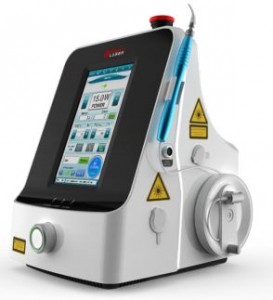Interventions are getting more non invasive and comfortable as the technology advances.
LASER
 Laser technology brings us the less pain and quicker wound healing without any scars in the mucosal levels. Ear surgery by laser is more precise for the stapedectomy and myringotomy operations. Nasal surgery by laser is much more comfortable lets us not to put any dressings in the nose after septoplasty. Inferior choncha reductions are bloodless and painless with laser. Endolaryngeal surgeries by laser are more accurate and less complicated. Endolaryngeal cordectomy and vocal cord nodule excisions can be done by laser technology. Childhood sugeries such as tonsillectomy and adenoidectomy also can be done by laser with less pain postoperatively.
Laser technology brings us the less pain and quicker wound healing without any scars in the mucosal levels. Ear surgery by laser is more precise for the stapedectomy and myringotomy operations. Nasal surgery by laser is much more comfortable lets us not to put any dressings in the nose after septoplasty. Inferior choncha reductions are bloodless and painless with laser. Endolaryngeal surgeries by laser are more accurate and less complicated. Endolaryngeal cordectomy and vocal cord nodule excisions can be done by laser technology. Childhood sugeries such as tonsillectomy and adenoidectomy also can be done by laser with less pain postoperatively.
Duration of the surgery by laser does not differ from the conventional methods but surgeon spends less time for the coagulation controls after the surgery.
The main advantages of laser surgery (with particular reference to the transoral laser microsurgery):
- Simplicity
- Shorter operation duration
- Minimally invasive surgery
- Lower morbidity
- Possibility of operating on elderly and /or debilitated patients and/or with pacemaker not like electro cautery.
- Shorter hospitalization or outpatient procedures
- Results of surgical oncology equal to or even better than those of traditional surgery
These laser systems are excellent surgical instruments, characterized by remarkable hemostasis ability and reduced lateral thermal damage.
Diode Laser Surgical Techniques are used in ENT, primarily in middle ear surgery, in endolaryngeal surgery, in endonasal surgery and in oral surgery.
Finally, thanks to the photomechanical action, lasers are used in ENT applications for the treatment of salivary stones (sialolithiasis).
In many cases, endoscopic laser lithotripsy is a viable minimally invasive alternative to transoral scialectomy or external sialoadenectomy procedures when too large salivary stones cannot be entirely removed from the ducts.
Main Treatments
Transoral Laryngeal Microsurgery: cordectomies and cordotomies | polyps and laryngeal papillomas (including diffuse papillomatosis) | cordal nodules | benign neoformations | Reinke’s edema | laryngocele | hyperkeratosis laryngitis | scar tissue | granulomas | congenital web | leukoplachia and erythroplasia | primary laryngeal tumors | surgery after unsuccessful radiotherapy | paralysis in adduction of the vocal chords | laryngotracheal stenosis | laryngeal amyloidosis.
Middle Ear Surgery: stapedotomies and myringotomies.
Oral Surgery: leukoplachias | erythroplasias | papillomas | hemangiomas | tumors (e.g. glossectomy) | Zenker’s diverticulum | choanal atresia | LAUP (Laser Assisted Uvulo Palatoplasty) | tonsillotomy & tonsillectomy | sialolithiasis (salivary stones).
Nasal, Endonasal & Endoscopic Sinus Surgery: turbinate reduction (for hyperplasia of turbinates) | septoplasty | removal of nasal obstructions (e.g. stenosis), recurrent polyposis nasi & sinuses, synechiae | rhinophyma | cheloids and hypertrophic scars removals.
Tracheobronchial Tree: stenosis, nodules, polyps, tumors.
Head & Neck: resection of tumors in sub-facial and neck region.
MICRODEBRIDER (SHAVER)

Endoscopic sinus surgery is getting less invasive but some diseases like nasal polyposis advanced surgery skills are needed. Microdebrider system allows us to shave the polyps without bleeding. Surgery planning has to be done by imaging modality either MRI (preferred) or CT (not preferred due to cumulative dose for the head and neck region).
RADIOFREQUENCY

Radiofrequency is widely usable for the mucosal volumetric reductions and/or for the mucosal lesion excisions. Radiofrequency energy is not burning the mucosa or the tissues by means of this ability it allows the tissue to shrink without losing function. Scar formation is less by radiosurgery.
In North Cyprus Assoc. Prof. Dr. Mete İNANÇLI invested for all advanced surgery technology for his surgeries. In any indications for surgery listed technology can be applicable.
BALOON SINUPLASTY
Baloon sinuplasty is the most recent non invasive sinus surgery procedure all around the world. The procedure can be done outpatient. We prefer under general anesthesia but it can also be done under local anesthesia. The main principle is to widen the gates and clean inside of the paranasal sinuses. As soon as the gates stay open the chronic infection will never occur again. The effect of this procedure reaches up to five years. Patients may have redo operation after five years. Post operative recovery is shorter and there is no precautions as FESS post operative period. Less bleeding, less pain, quicker recovery, no hospitalization are the advantages of this technique. Only disadvantage of the procedure is the cost of the surgery.




